Entretiens - Notre interview de Christopher Lennertz (VO)
Par Mulder, Los Angeles, 16 avril 2016
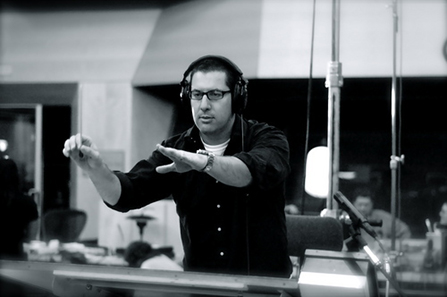
Q: Good morning, Christopher Lennertz you are one of the most interesting American musical composers. You have worked on some popular movies such as Alvin and the Chipmunks (2007), Hop (2011), Horrible Bosses (2011), as well as on successful series and video game. Can you talk a little about your past collaborations with director Tim Story?
Christopher Lennertz : I love working with Tim. Tim is a fantastic director who loves movies the way I do. We both went to USC and have so much in common. Now, after our fifth collaboration, we’ve really developed a shorthand together. There’s also a lot of trust between us, which allows us to be able to take chances, but also have fun with the process.
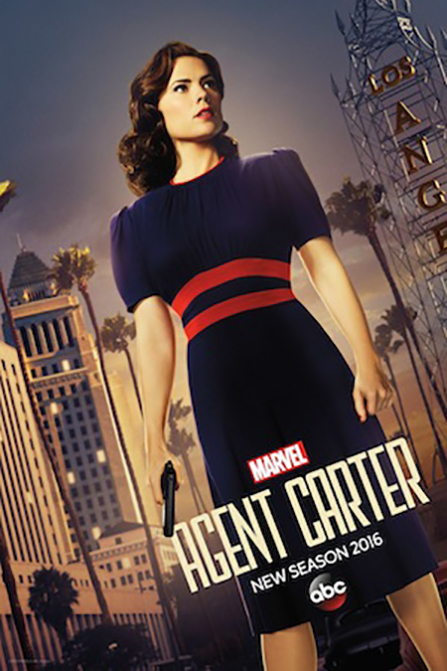
Q: You are one of the few composers who records his TV scores with a full orchestra. For Agent Carter you collaborated with the Hollywood Studio Symphony. Can you talk about that collaboration?
Christopher Lennertz : The Hollywood players I use are phenomenal. They are so talented and amazingly fast. Even better, they are dear friends with great attitudes. It makes it easy to get great results under pressure when I know I can count on them to make the music sound great.
Q: Since 2013 you have worked with Marvel Studios on the Agent Carter one shot and series. Can you talk about your relationship with Marvel and the process to create this amazing score?
Christopher Lennertz : Marvel and Louis [D’Esposito], who was boss, the director and exec. producer, gave me a lot of freedom. He’s very encouraging and has great instincts He loves music and wants music to play a part in his shows. I couldn’t be a bigger fan of Louis and I couldn’t be more thankful for the opportunity that he’s given me. I felt like everyone was very open to all my ideas. In the end, I think it’s a team effort and I’m happy to be part of the team. And in this case, everyone involved with the series has just been fantastic and so supportive of the music.
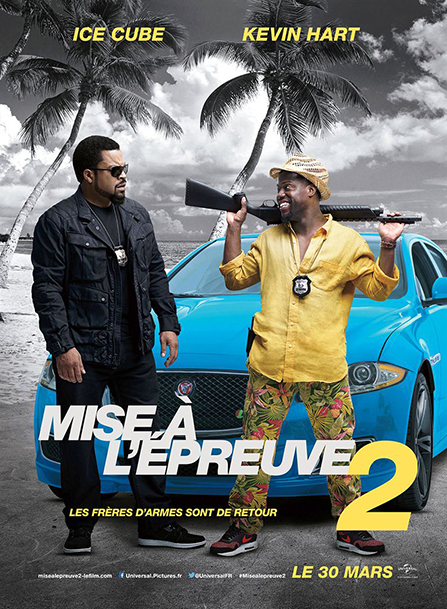
Q: What do you like about the process of film scoring? What can you say about the score of Ride Along 2, What was it like for you to work with Sheila E. and Arturo Sandoval on this score?
Christopher Lennertz : The best part of writing film music is to be a part of telling the story the director wants to tell. Ride Along 2 was a perfect example. Tim Story knew he wanted to focus on the Miami elements involved and he and I worked closely to bring that to life. One way we did that was by hiring Sheila and Arturo to bring their immense talents and knowledge of the genre to the performance of the music.

Q: What is for you the difference between working on tv series in comparison to movie scores and video game scores?
Christopher Lennertz : Games usually have more time, which is lovely. Usually there are fewer specifics in terms of timing and in terms of writing a cue or a particular melody because gameplay is not linear. You’re not really shackled by exact timings because, depending on the player, it can vary. In a TV show or movie, it’s predetermined. There’s something really freeing about games, which is really nice, and games tend to have really music friendly creators and producers that want music to be a big part of the game. There’s not as much of a script and there’s a lot of action that goes on without dialogue, so there’s a lot of great storytelling that music can do in games. I think it’s great, I love when I get a chance to tell a longer, bigger, broader story in a game, which I’ve had the opportunity to do quite often. Things like Gun, and Medal of Honor specifically have been really great for that. Starhawk was great, too.

Q: You have said that you like to score dramas. Can you go in to details on why?
Christopher Lennertz : I feel that dramas tend to be very inspiring and the music I can create can have a lot of emotion. This allows me to be a bit bigger and more dramatic than I can sometimes get in other genres.
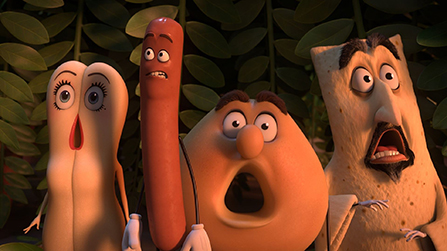
Q: What can say about your collaboration with Greg Tiernan and Conrad Vernon on The Sausage Party, created by Seth Rogen?
Christopher Lennertz : All of the producers of Sausage Party a great. Conrad and Greg, our directors are so talented and working with Seth is a dream. He’s got amazing instincts, gives great notes, and is a ton of fun. I think everyone is going to love this movie.
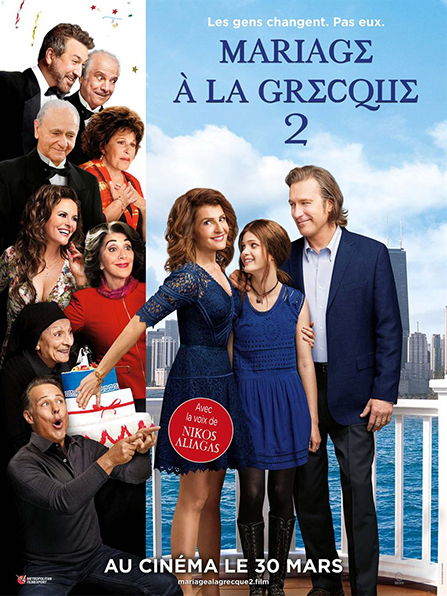
Q: Tell us a bit about your score for My Big Fat Greek Wedding 2?
Christopher Lennertz : I was brought in pretty late in the game, but was very familiar with the first movie. I come from a big Italian family, which is very similar in a lot of ways, so I think I could easily relate to the humor as well as the emotion. It was also great to get to work with Playtone, who I think makes such great film and TV.
Q: Concerning this music you had specially used some Greek instruments in unconventional ways to give a subconscious feeling of the ethnic influence. I have the chance to discover this album and I like. How did you found a such good inspiration?
Christopher Lennertz : Gary Goetzman, who was one of the main producers, wanted the songs to be very traditional Greek, but the score he wanted to work more like traditional score. Because of this, we came up with the idea to still use Greek instruments, but in a more traditional score fashion.
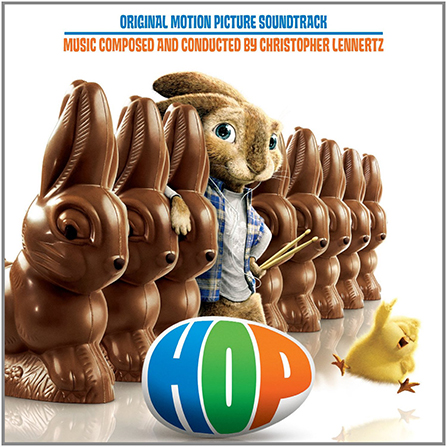
Q: Can you talk a little about your collaboration too with Ben Falcone on the film The Boss?
Christopher Lennertz : Ben was a great partner on the Boss. He was very supportive and really likes fun music. He and Melissa were both great to work with. I’d love to work with them again anytime.
Q: Which directors would you like to work with and why?
Christopher Lennertz : There are so many directors I’d love to work with, and actually most of them have composers they use already, but if they ever looked elsewhere, I’d love to work with Scorsese or Peter Jackson, Robert Zemekis or Spielberg. But then again, who wouldn’t!?

Q: In your past you have been fortunate to work with Basil Poledouris, Michael Kamen, Ozomatli, Dave Grusin, can you tell us an anecdote about working with them?
Christopher Lennertz :I have been so lucky to work with so many greats! Basil was probably my closest friend and mentor. I learned so much from him in the studio, but I think I learned even more about composing from him when we used to go on his sailboat. For Basil, his love of the ocean was just like his passion for composing. It was so inspiring. He even helped me pick out a boat to buy of my own just before he passed away. That was very special.
Q: You have worked on a lot of video games as the Medal of Honor games (2003-2007), Mass effect 2. How do you work the score for a such a different type of media?
Christopher Lennertz : It’s actually not that different than any other kinds of scoring. The function is the same, it’s just the implementation that is different.
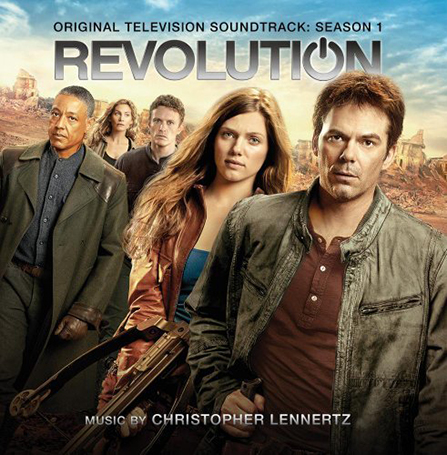
Q: What can you say about your collaboration with Alan Menken on the series Galavant ? How did you share this work?
Christopher Lennertz : It’s Alan’s show that he was kind enough to bring me aboard. He’s a hero of mine and I have so much respect for his process that I really try to get his input as we record and always make sure that he thinks we’re serving the show in the right way. The process is extremely fast, so having an amazing team, as Alan and I both do, allows us to make this even happen. I’m very grateful for everyone who works so hard on the show. Most of all, I’ve learned a ton from watching Alan work. He’s truly amazing.
Q: What are your favorite movies?
Christopher Lennertz : Empire Strikes Back, Godfather 1 and 2.
Q: What are your current project (s) ? What can you say about your work on the video game Scalebound ?
Christopher Lennertz : We just finished My Big Fat Greek Wedding 2 which was great fun and a pleasure to be a part of. Now we are putting the finishing touches on the music for Sausage Party which we record this coming week at Abbey Road. And then we start the comedy Bad Mom’s with Kristin Bell and Mila Kunis which should be a blast to work on as well. After that is a reboot of the Smurfs. I unfortunately can’t talk about my involvement with Scalebound.
Q: What is your most important accomplishment to this date?
Christopher Lennertz : I don’t think I can come up with just one. I think I’ve been very, very lucky. Some of my earliest accomplishments were probably getting to work for Basil Poledouris, who did Conan, then, later, working for Michael Kamen. Those were really big breaks in terms of learning the process and learning the business and things like that. As far as big breaks creatively, there’s been quite a few. Obviously, Supernatural was a big one for me, it being the first big series I did. That was for my good friend Eric Kripke. Then, also, Alvin & the Chipmunks was a big break for me as it was a big hit movie, and then Medal of Honor in the video game world. It’s been great journey, and I’m thankful for every opportunity and accomplishment that has come my way.
Q: What kind of advice could you give to someone who would like to work as a musical composer?
Christopher Lennertz : Well, getting into the industry is obviously very difficult. There’s really no specific way to do it other then meeting a lot of people and showing them that you can do it. For me it was a two or three-pronged attack. One was meeting young filmmakers when I went to USC and doing short films, and then low-budget independent films and proving in that ground that I could do what I needed to do. That helped me to develop relationships with directors who would later go on to work and do great things. Simultaneously, I was working as an assistant for Basil, and for Michael, and collaborating and doing some writing for Mark Mancina and doing orchestration for Brian Tyler and others. Doing all of that at the same time was important for me in getting practice with an orchestra, and in working with producers and directors and getting them comfortable. Kamen was really fantastic at that. The most important things are to Learn, Practice, and meet as many people as you can.
We sincerely thank Christopher Lennertz for answering all our questions
A special thanks to Andrew P. Alderete, working with you make us better.

